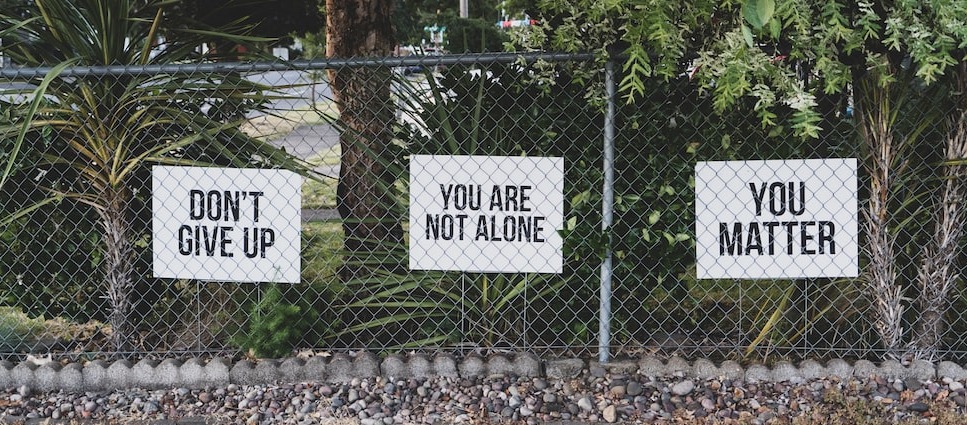
Bipolar disorder is commonly known for constant and unusual mood swings. However, many people go undiagnosed, thinking their mood swings are typical. Undiagnosed bipolar disorder can lead to other mental health problems and addiction.
Many people with undiagnosed bipolar disorder self-medicate to reduce their symptoms, not knowing they have bipolar disorder. The practice of self-medication can quickly lead someone down the road of addiction. Those struggling with bipolar disorder and addiction often need professional treatment.
What Is Bipolar Disorder?
According to the National Institute on Mental Health (NIMH), bipolar disorder “[I]s a mental illness that causes unusual shifts in mood, energy, activity levels, concentration, and the ability to carry out day-to-day tasks.” Bipolar disorder typically presents itself in a person’s late teen years or early adult years.
Treatments for bipolar disorder are lifelong. They often include a prescribed treatment plan alongside guidance to manage symptoms and improve mental health long-term.
There are three types of bipolar disorder: bipolar I disorder, bipolar II disorder, and cyclothymic disorder.
Bipolar I Disorder
People with bipolar I disorder experience at least week-long manic episodes followed by roughly two weeks of depression. It is also possible for manic periods to occur during this two-week period. If this cycle occurs four or more times a year, it is considered rapid cycling.
Bipolar II Disorder
Those with bipolar II disorder also go through this cycle of episodes. However, those with bipolar II disorder do not experience manic episodes. Instead, they experience hypomanic episodes. This is because hypomania experienced in bipolar II disorder is less severe than mania experienced in bipolar I disorder.
Cyclothymic Disorder
Another form of bipolar disorder is cyclothymic disorder or cyclothymia. This disorder includes hypomanic and depressive symptoms. However, the symptoms are not severe enough or do not last long enough to qualify as episodes.
Unspecified Bipolar Disorder
There are symptoms of bipolar disorder, however, that do not fit the descriptions listed above. These can be part of unspecified bipolar or external disorders.
Symptoms of Bipolar Disorder
Symptoms of mania in bipolar disorder can include:
- Very positive, high feelings and emotions
- Easily irritated or touchy
- Feeling jumpy or more active than normal
- Decreased need for sleep or an inability to sleep
- Feeling one can complete many tasks or activities simultaneously without getting tired
- Fast speech, talking quickly, or jumbled speech
- Racing thoughts, which are also affiliated with the quickness of speech
- Increased appetite, sex drive, drinking, or other pleasurable activities
- Increased feelings of importance, talent, or power
Those with bipolar II disorder or cyclothymic disorder typically experience these symptoms to a lesser degree.
Symptoms of depressive episodes often include:
- Feelings of sadness or anxiety
- Noticing oneself move or complete activities in the day slower
- Restlessness and trouble falling asleep and waking up
- Excessive sleep
- Slower speech, forgetfulness, or trouble finding what to say
- Trouble with concentration or decision-making
- Feeling unable to complete simple tasks
- Lack of interest in activities
- Feelings of hopelessness or worthlessness
- Thoughts of death or suicide
These symptoms and episodes can also occur at the same time, known as mixed feature episodes. For instance, feelings of hopelessness residing with depressive episodes may also be paired with feelings of power from manic episodes.
Often these symptoms go unnoticed as many people who experience bipolar disorder symptoms recognize their feelings as something random that will eventually subside. It is also common for the individual to not recognize these symptoms as a disorder, although those around them can notice changes in their behaviors. Due to this mindset, many individuals with bipolar disorder go undiagnosed, leading to increased risk of addiction.
Undiagnosed Bipolar Disorder and Addiction
When dealing with severe mood swings, many undiagnosed individuals find themselves coping with substances. Alcohol is primarily a substance found to be used in people with undiagnosed bipolar disorder. Their goal with self-medicating is to ease their mood swings and overwhelming feelings. However, this creates co-occurring issues: mental health issues as well as addiction.
According to the Substance Abuse and Mental Health Services Administration (SAMHSA), “[B]ipolar disorder and substance misuse can be viewed as overlapping disorders of the systems in the brain that regulate impulsivity, motivation, and the feeling of reward.” They estimate that roughly 30-50% of people with bipolar disorder will develop substance use disorder (SUD).
Finding Treatment Through Intervention
It can be frightening for individuals not to know why their behavior is constantly changing and not knowing why substance use feels necessary for them. If these experiences are prevalent or bipolar symptoms are present, intervention can help your loved ones find a diagnosis and treatment.
With an intervention, a treatment plan is created. Co-occurring disorders can be dealt with simultaneously, providing support for both mental health and addiction.
Both mood disorders – such as bipolar disorder – and relapse prevention can be implemented in treatment plans. When treatment is over, an after-care support system is also created where professionals and registered faculty specifically focus on relapse prevention.
Here at A New Hope Recovery, we can help find treatment for both mental health disorders and addiction. Our intervention program and treatment plans help patients and their families navigate their recovery journey. We provide support from our faculty and encourage individuals to have a support group of their own, ideally loved ones like family members or friends. With an intense support system and willingness, our patients develop a new sense of understanding. At A New Hope Recovery, we prioritize the patient in regard to achieving their lifelong goals, not just guiding them through recovery. We support them after their treatment plan, implementing a relapse prevention service. Call us at (407) 501-8490 to learn more about our services.
